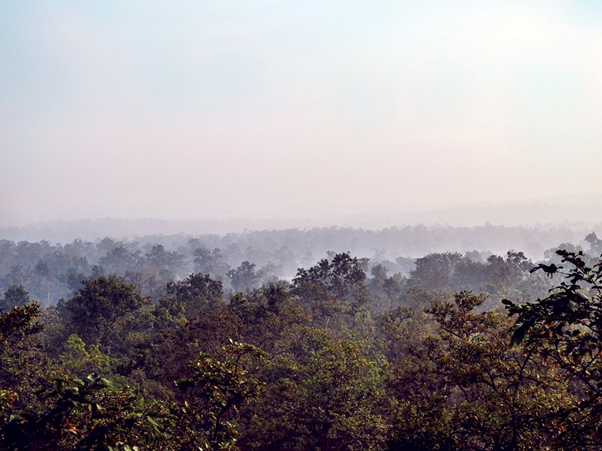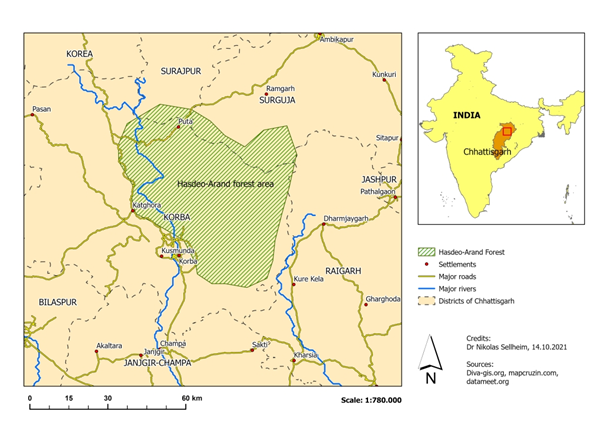Coal mining protest in Hasdeo Aranya
Context
Over the past one year, protests against mining in this region have erupted several times and some still continue to sit-in demanding a complete stop to mining. 
The update
- The Chhattisgarh Legislative Assembly unanimously passed a private member resolution urging the Centre to cancel allocation of all coal mining blocks in the ecologically sensitive area.
Private Member Resolution
|
When did the controversy surrounding coal mining start?
- Underneath the Hasdeo Aranya is a coalfield that comprises 22 coal blocks.
- At present, of the 22 blocks, seven blocks have been allotted to different companies.
- In 2010, the Centre categorised Hasdeo Aranya to be a “no-go” zone for mining.
- It ruled out mining in any of these blocks.
- However, only a year later, the Ministry of Environment, Forest and Climate Change (MoEF) granted clearance for the mining for one coal block.
The Hasdeo forest
- The Hasdeo Aranya forests are called the lungs of Chhattisgarh.
- The Hasdeo forest covering Chhattisgarh’s Korba, Sarguja and Surajpur districts, spans an area of 170,000 hectares.
- It is a noted migratory corridor and has a significant presence of elephants.
- It is also the catchment area of the Hasdeo river, the largest tributary of the Mahanadi river which originates in Chhattisgarh and flows through Odisha into the Bay of Bengal.
- The area was declared as a ‘No-Go Zone’ for mining by the Centre in 2009.
- Despite this, mining in the region continued as the policy for the ‘No-Go Zone’ was not finalised.
- The Hasdeo forests are also the catchment area for the Hasdeo Bango Dam built across the Hasdeo river which irrigates six lakh acres of land, crucial to a State with paddy as its main crop.


